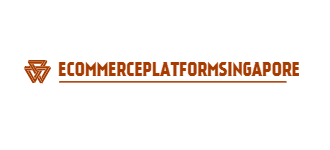The other day, while I was talking on the phone, the person on the other line asked me questions about the global supply chain. She wanted to know why it is in such turmoil and what we can do about it. It was a question that I was eager to answer about a topic that is so important to me. However, it came from an unexpected source.
This person has been my friend for many decades. It’s been a long time since I heard those words – “supply”, and “chain” in the same sentence – in conversation. My mother was the person calling me. My mother was asking me questions about global supply chains. Before I could answer, I thought, “Well supply chain is mainstream now!” This conversation made me realize that everyone has questions and concerns about the supply chain.
What’s happening?
It is a difficult environment, with many issues at once. The following are key factors that can impact progress:
- Both yesterday and today, global supply chains have always had to deal with problems. However, these issues have been amplified in the past two years because of the COVID-19 pandemic. 94% of Fortune 1000 companies are experiencing disruptions in their supply chains from COVID-19. This highlights the need to have more resilient operations.
- Companies are being forced to improve customer service and speed up delivery due to increased direct-to-consumer online e-commerce. This has led to a new era of industry convergence and hyper-competition, which has made it necessary for enterprises to adapt their operating models to meet customer expectations.
- Companies large and small must rethink their supply-and demand operational networks in order to keep up with global macro-trends like the sharing economy, sustainability, and electrification. It seems that no one wants to wait; now is the right time.
What can we do to help?
To help our clients solve these problems, Accenture is partnering with Amazon Web Services. Our first task is to help organizations reimagine their supply chain. Businesses need assistance in building them. These supply chains are so complex that no single entity can manage them. Companies want to improve their supply chains and consider sustainability, as well as simplifying for their customers, their employees, and the environment. We believe in a human-centered, data-driven approach that inspires and motivates our clients and employees to continue to create and innovate.
►►►► Please visit our products: Magento POS, BigCommerce POS, Shopify POS, Woocommerce POS, NetSuite POS, Mobile POS, White label POS, Reseller POS, POS System for Retail and Commercetools POS
This approach is guided by three major dimensions, which make up the Intelligent Supply Chain.
- Customer Centricity: Transforming the ecosystem and end-to-end value chains into a customer experience-focused growth engine
- Zero-based mentality: Obtaining superior supply chain performance at the right price to unlock growth funds
- Responsible operations and organisations: Creating sustainable operations to earn the trust of stakeholders and give them the right to operate and grow
Accenture and AWS help you achieve your goals
We are combining our top technology capabilities such as Amazon SageMaker and Amazon Forecast to address the most critical use cases within the supply chain operating refer (SCOR). These solutions can be customized at the sub-industry and industry levels to address the unique challenges that our clients face.
These are just a few examples.
- An international high-tech hardware company relied on an external supply chain that included partners for transport, manufacturing, warehousing and other activities. Client did not have a single source of information to track inbound orders or shipments. This resulted in poor customer service due to inconsistent delivery dates and unpredictable delivery times. AWS technology was used to create an intelligent control tower that provides better visibility and control.
- Global heavy industrials manufacturer relies heavily upon external suppliers for the right parts to build its machines or fulfill customers’ orders. There has been limited visibility in the fluctuations in the parts that the company can expect from its suppliers. This led to uncertainty and increased variability. The client wanted to be able to see what might affect suppliers, such as weather events, COVID-19 spikes and other external supply chain pressures. Our solution uses a variety of AWS technologies to ingest that data and combine it with the supply requirements and projected items availability.
- The direct-to-customer distribution model of a leading connected fitness company is a key component. This increases the importance and value of the installation and delivery experience. The organization did not have a data-driven inventory balancer that could be used to balance distribution centers with downstream fulfillment points. This negatively affected the ability to match supply and demand. This led to high DC-to DC transfers, higher domestic truck spend, out of stock situations, and sub-optimal customer experience. Accenture used AWS machine learning predictive models to determine the optimal allocation plan.
source https://www.accenture.com/us-en/blogs/cloud-computing/start-your-intelligent-supply-chain

